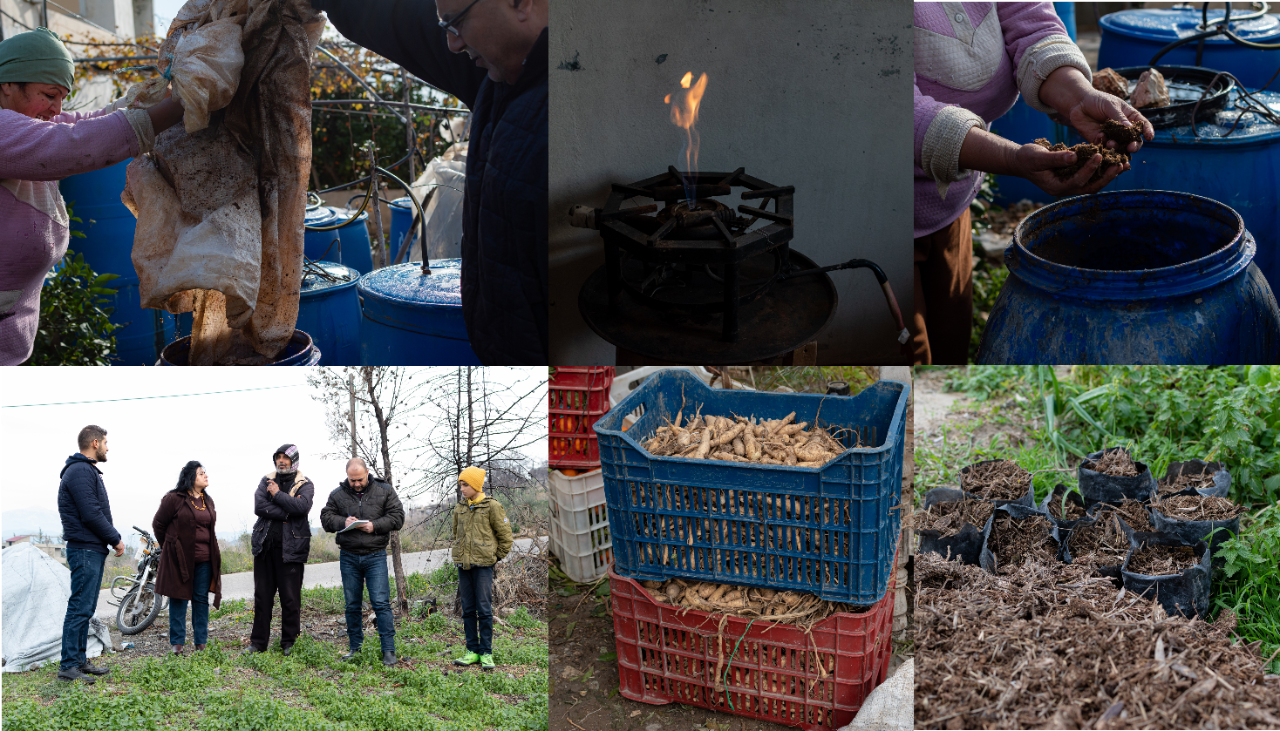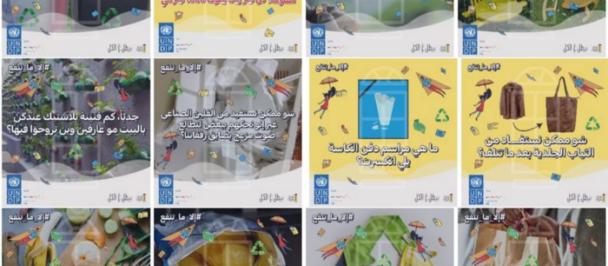7 things we learned about frugal entrepreneurship
February 8, 2022
By: Kenda Alzaim, Head of solutions mapping, Accelerator Lab Syria.
Accelerator lab in Syria is working with farmers on their nature-based solutions to address the complex challenge of scarcity of agricultural inputs. Our main question was how we can leverage these local solutions and make the best of what is available instead of importing exogenous solutions? the answer was found in the application of frugal entrepreneurship.
We worked with positive deviant farmers who have found innovative and sustainable means to produce fodder and compost using locally sourced materials which gave us the opportunity to acquire hands-on experience to learn more about what frugal entrepreneurship is, its applications, and its impact on local sustainable development. We concluded our learnings in the following seven insights that were gained during our journey:
1. What is frugal entrepreneurship:
Just like Frugal innovations, frugal entrepreneurship is a new term that is gaining more interest among sustainable development professionals. Although there is still much to explore, but there is some sort of a consensus on what frugal entrepreneurship is which can be defined as: developing affordable products efficiently in resource-constrained environments, responding to the specific needs of underserved “customers” in developing countries and marginalized communities. It is, in our case, services and supplies provided by the same people who need them.
In the past few months, we worked with small holder famers, who have low levels of education, and are living in a resource constrained environment. However, they decided to use whatever resources available locally to produce compost and fodder. With proper mentorship from our side, these farmers became frugal entrepreneurs and started supplying the pressing needs of their communities with affordable Agri-inputs.

Field mentoring for farmers
2. Inclusive entrepreneurship:
Frugal entrepreneurship approach is bringing us closer to achieving the 8th sustainable development goal: Promote decent work and sustainable inclusive economic growth” and the 10th goal: reduce inequalities. Frugal entrepreneurship offers the opportunity to all people regardless of their background to start their own frugal businesses. Moreover, it can be utilized to reduce inequality and poverty by opining the door to equal opportunities in creating inclusive and well-functioning markets that low-income customers can be part of; such customers who are usually placed at the bottom of the pyramid neglected, forgotten, and underserved in mainstream markets.
Small holder farmers are the most affected by the scarcity of Agri-inputs; however, they are excluded from big markets that mostly target large scale farmers. By making the materials affordable and available on community level, these frugal entrepreneurs are contributing to creating a more inclusive market.
3. Is it the same as social enterprises?
Frugal entrepreneurship shares many characteristics with social enterprises; they both generate positive societal and environmental returns e.g., reducing costs, addressing unmet needs, and creating benefits to their underserved community.
The difference between frugal entrepreneurship and social enterprise lays in their triggers. A social enterprise is triggered by social responsibility, a mission that aims to achieve social, economic goals and to earn revenue at the same time. Frugal entrepreneurship on the other hand, are triggered mostly by unmet needs that entrepreneurs themselves suffer from.
4. Environmentally friendly entrepreneurship:
Frugal entrepreneurship represents many opportunities for new forms of frugal supply chains in a context of resource-constrained environments. Doing more with less, closed-loop supply chain, preserving the already scarce resources, and contributing to a circular economy are now achievable goals with the application of a frugal supply chain.
Frugal supply chain means that there are less raw materials used in sourcing phase, reincorporation of waste and recycled materials into production cycle, reduced usage of packaging’s clutter, and shorter to no distances traveled for distribution.
When producing the compost and fodder, the farmers who we are working with depend on locally available resources including waste. For instance, one farmer is repurposing old kitchen utensils to sprout barley, that is used as animal feed alternative. Another farmer is feeding organic waste to red worms to make vermicompost. Moreover, these innovative farmers are using minimal packaging materials thus reducing waste generation.
Another proof that frugal entrepreneurship is environmentally friendly can be seen in the way it is helping Syrian farmers to transition to a more regenerative and sustainable farming by making regenerative farming supplies locally available and affordable.
Training on frugal entrepreneurship for mentors
5. Empowering local communities:
One important lesson we learned during our work is that working with women and men to expand their frugal businesses that serve their communities is an act of empowerment. By trusting in their expertise and abilities, we are showing these communities that the solutions to the challenges they are facing is sometimes in their own hands. Moreover, supporting frugal entrepreneurs contributes to building a resilient community that is confidant in its indigenous knowledge and local capabilities to achieve sustainably.
6. Creating networks: Social cohesion:
An eco-system for frugal entrepreneurs can be made by connecting and directing entrepreneurs to available resources, potential customers, and to other frugal entrepreneurs with complementary competences.
The network that was created among our targeted farmers helped them in expanding their work and identifying potential interested customers. Furthermore, they recognized the opportunity to learn from each other, so they started to exchange knowledge and expertise.
Such interactions among farmers are bringing the community members closer to each other and strengthening social cohesion.
7. A Positive contagious Behaviour:
The frugal entrepreneurs we met are positive deviant farmers; despite being exposed to the same challenges and limitation as other farmers in their communities, they distinguished themselves in a positive way and decided to create solutions from whatever available resources around them. It was great for us to witness how these positive deviant farmers inspired other farmers to start acting instead of just waiting for outside solutions. Many farmers started imitating the frugal entrepreneurs by following their steps in making compost and fodder from organic waste. Moreover, some of them identified potential customers in nearby villages thus scaling up the solutions and contributing to solving part of the scarcity of Agri-input challenge.
These insights were generated by working and engaging directly with farmers. There is still much more to be done and learned about how to support frugal entrepreneurs. Nevertheless, we hope that this blogpost brings us one step closer to understanding the importance of this emerging entrepreneurial approach which is contributing to leaving no one behind.

 Locations
Locations
